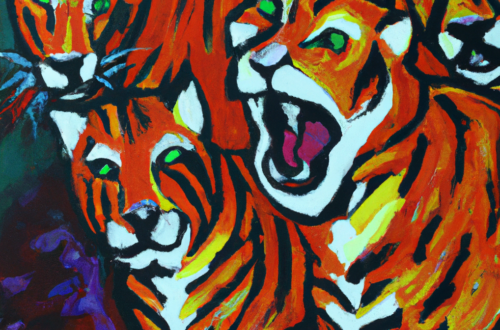Live Export of Animals from India: A Tragic Triad of Cruelty, Environmental Devastation, and Public Health Risks
In the wake of India’s proposed draft Livestock Bill for live exports, one must stop to consider the ramifications of such a decision. As a country rich in biodiversity and culture, India is in a unique position to set the stage for ethical, sustainable practices. Yet, this proposal threatens to not only undermine this reputation but potentially cause widespread harm. Live export of animals from India is an abhorrent practice that must be vehemently opposed on multiple fronts. Not only does it perpetuate unimaginable cruelty towards sentient beings, but it also exacts a heavy toll on the environment and poses significant risks to public health. It is time to confront the inherent moral, ecological, and health implications of this trade and take decisive action to put an end to this tragic triad.
Central to the concerns raised by this proposed legislation are animal welfare issues. The live export industry has a disturbing track record of creating conditions for the extreme suffering of animals. The live export industry from India flagrantly disregards the well-being of these sentient beings. Animals are subjected to extreme suffering as they endure long and arduous journeys, packed tightly into cramped, unsanitary conditions. The overcrowding, inadequate ventilation, and lack of access to food, water, and rest lead to immense stress, injuries, and compromised welfare. This callous treatment of animals for the sake of profit is an affront to our shared values and ethics. As of 2019, India had about 535.78 million livestock, which included cattle, buffalo, sheep, goats, pigs, and others. This indicates a significant number of animals potentially subjected to the poor conditions of live export, which would make the welfare concerns even more pressing.
The environmental implications of live export further amplify the case against this proposed legislation. Transporting livestock across vast distances requires substantial energy resources, thus contributing to greenhouse gas emissions and accelerating climate change. Moreover, live export involves a global network of transportation, with associated pollution and waste issues at both the departure and destination points. In an era where the fight against climate change requires significant effort from every nation, it’s essential for India to consider these environmental costs. According to the Food and Agriculture Organization of the United Nations, livestock farming in India produced around 15% of the country’s total greenhouse gas emissions, with cattle being the most significant contributors. If India were to significantly expand into live export, this figure could increase, with the transportation process contributing to the emissions. The ecological devastation caused is alarming, demanding urgent action to mitigate its impact on our fragile planet.
In addition to environmental concerns, the live export trade also poses significant risks to public health. The close proximity and confinement of animals during transportation create ideal conditions for the rapid spread of infectious diseases. The potential transmission of zoonotic diseases from animals to humans is a real and pressing threat. By facilitating the transport of potentially infected animals, the live export industry undermines public health and compromises the well-being of communities both within India and at the destinations where these animals are shipped. Past instances globally have shown that live exports contribute to the spread of diseases such as avian influenza and foot-and-mouth disease, putting not just the livestock but human lives at risk as well. These diseases can jump borders and seas, potentially leading to global outbreaks.
The draft bill’s inclusion of household pets, notably cats and dogs, has undoubtedly ignited a surge of public outrage. While the angst over potential feline and canine suffering is wholly understandable and justified, it simultaneously prompts a larger ethical inquiry. Are we prepared to delineate which animals are deserving of our protection and which are not? The distress encountered by cows, pigs, or goats during the process of live exportation is no less poignant or severe than the afflictions suffered by dogs or cats. It’s high time that we abandon the unjust practice of appraising the worth of one species against another, and instead confront the core issue at hand – the very concept of live export itself.
No creature, irrespective of its species, should ever endure the terrifying ordeal of being transported overseas like an inanimate object. All animals, from our beloved companion animals in homes, to farm animals traditionally seen as commodities, share the same capacity for fear, pain, and stress. By insisting on their equal consideration, we challenge the conventional perception of animals as merely resources for human use. This acknowledgment of their intrinsic worth provides the foundation for a more compassionate and ethical stance towards all living beings.
Thus, our objection should not just be against the possible inclusion of cats and dogs in the live export trade, but rather, against the very idea of live export as an industry. It calls into question not just the treatment of pets, but the commodification and suffering of all animals. It is a harsh reminder that our decisions and policies should not be dictated by species but by respect for life in all its forms. The resistance against this draft bill then becomes more than just an act of opposition. It becomes a call to redefine our relationship with animals, our stewardship of the planet, and indeed, the very essence of our humanity.
One might argue that the live export industry brings significant economic benefits. However, these short-term financial gains should not be prioritised over long-term environmental sustainability, public health, and animal well-being. Legalising and perpetuating the live export trade is a betrayal of our values and a failure to safeguard the welfare of animals, protect the environment, and ensure public health. In the face of these challenges, India must explore and invest in alternatives. The government should actively promote and support alternative industries that do not rely on live animal export. By emphasising plant-based food production, sustainable farming practices, and cruelty-free materials, India can lead the way in building a compassionate and ecologically conscious society. Investments in renewable energy and green technologies can further contribute to a cleaner, sustainable future.
India’s proposed draft Livestock Bill for live exports brings to the forefront the debate about the ethical treatment of animals, environmental sustainability, and public health. It is not merely about cats and dogs, or cows. It’s about how we, as a society, choose to treat all animals, the earth we share with them, and ultimately, ourselves. Rejecting the bill is not just a statement of opposition but a call to rethink and reshape the structures of the livestock industry toward a more sustainable future.
———
An edited and modified version of this, co-authored with Alok Hissarwala Gupta, was carried by Scroll on 23 June, 2023
https://scroll.in/article/1051338/the-livestock-export-bill-has-been-withdrawn-for-now-but-disregard-for-live-animal-trade-remains





